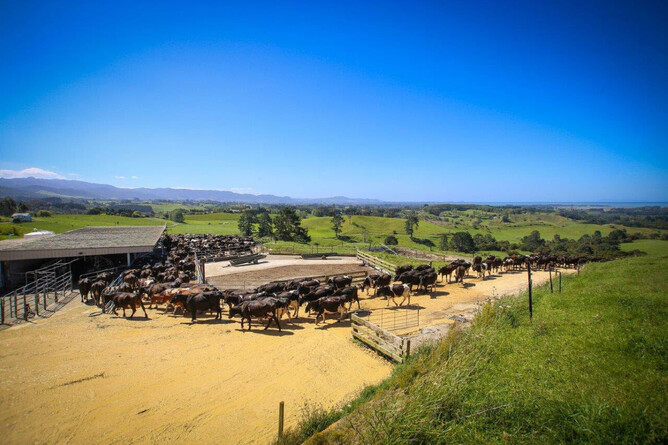INTRODUCTION
The dairy sector is critical to New Zealand’s GDP, but it is also critical in the way that it affects the environment. There has been a huge focus over many years to reduce the environmental footprint of dairy and many successes on the board. One area that continues to be a significant focus is how to limit nitrogen leaching into waterways associated with cows’ urine. New technologies, as well as innovative new products that can minimise the impact of leaching offer enormous value.
BACKGROUND
Blue Pacific Minerals NZ (BPM) is a privately owned mineral based environmental and animal health company based in Tokoroa. The company has recently completed a six-year capital investment programme which saw the construction of a new 7,500 m2 state-of-the-art zeolite processing plant and product storage. An upgrade to quarrying equipment and quarry storage facilities, as well as expansion of other buildings has also occurred.
The mineral zeolite absorbs nutrients due to its highly microporous structure and strong cation adsorption. Given its particular affinity for ammonium which is the source of urinary nitrogen, the application of zeolite can have a positive affect on nitrogen leaching and is a potentially promising solution that had not been fully scientifically verified under New Zealand conditions.
Zeolite had previously been used in preliminary trials as a food supplement for dairy cows but more specific research was needed to quantify the impact of zeolite in lactating dairy cows. Such research required stringent clinical oversight and quality control if it was to convince dairy farmers and stakeholders that it could lead to a reduction in urinary nitrogen.
BPM is fully funding the trial programme and has contracted DairyNZ to undertake the research, known as a metabolic stall trial.
BPM targeted agricultural and marketing research and development trust, AGMARDT, for an initial grant to support the research. BPM then approached SWIFT for the $160,000 shortfall that would enable the dedicated trials to proceed.
SUMMARY
SWIFT funding meant the difference between the research being able to proceed in 2018 and waiting another year, possibly longer. The straightforward process and immediate appreciation of the size of the opportunity and implications for the South Waikato and beyond, enabled BPM to capitalise on DairyNZ’s research capability without unnecessary delay. SWIFT, with BPM, will continue to report on the results of the trial work over the next 18 months.
RESULT
The application to SWIFT was successful due to the overriding importance of dairying to the South Waikato and New Zealand. Science and innovation are crucial to understand how we can support future dairy.





